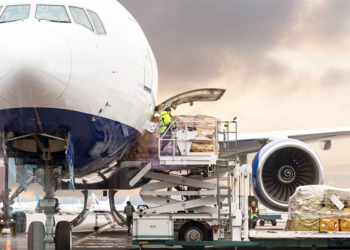The International Air Transport Association (IATA) has confirmed that about 98% of airlines trapped funds in the Nigeria has been successfully repatriated by the international carriers.
The Director-General of IATA, Mr. Willie Walsh, announced this in a statement on Sunday and praised the government for their efforts in ensuring the repatriation.
Walsh noted that as of June 2023, Nigeria had blocked funds totaling $850 million, which had a considerable impact on the operations and financial health of airlines operating there.
He explained 98% of the $850 million had been paid while the sum total of $19 million, representing about 2% of the funds, is still outstanding.
“At its peak in June 2023, Nigeria’s blocked funds amounted to $850 million, significantly affecting airline operations and finances in the country.
“Carriers faced difficulties in repatriating revenues in U.S. dollars, and the high volume of blocked funds led some airlines to reduce their operations and one carrier to temporarily cease operations to Nigeria, which severely impacted the country’s aviation industry.
“However, as of April 2024, 98% of these funds have been cleared. The remaining $19 million is due to the Central Bank of Nigeria’s ongoing verification of outstanding forward claims filed by the commercial banks.
“We commend the new Nigerian government and the CBN for their efforts to resolve this issue.
“Individual Nigerians and the economy will all benefit from reliable air connectivity for which access to revenues is critical,” Walsh said.
More Insights
Walsh mentioned that Egypt also authorized the clearance of its considerable backlog of blocked funds.
However, he noted that in both cases, the airlines suffered due to the depreciation of the Egyptian Pound and the Nigerian Naira.
Specifically, he noted that 8 countries constituted 87% of the total blocked funds, which summed up to $1.6 billion.
According to him, the total blocked funds globally at the end of April stood at approximately $1.8 billion.
“The reduction in blocked funds is a positive development. The remaining $1.8 billion, however, is significant and must be urgently addressed.
“The efficient repatriation of airline revenues is guaranteed in bilateral agreements.
“Even more importantly, it is a pre-requisite for airlines, who operate on thin margins, to be able to provide economically critical connectivity.
“No business can operate long-term without access to rightfully earned revenues,” Walsh said.
Countries with airline backlogs yet to be repatriated
Walsh listed the following countries which airline trapped funds yet to be repatriated as:
Pakistan, $411 million for 40 months; Bangladesh, $320 million for 40 months; Algeria, $286 million for 37 months; XAF Zone, $151 million for 50 months.
Also, Ethiopia $149 million for 58 months; Lebanon, $129 million for 52 months; Eritrea, $75 million for 116 months and Zimbabwe, $69 million for 84 months.













.gif)






